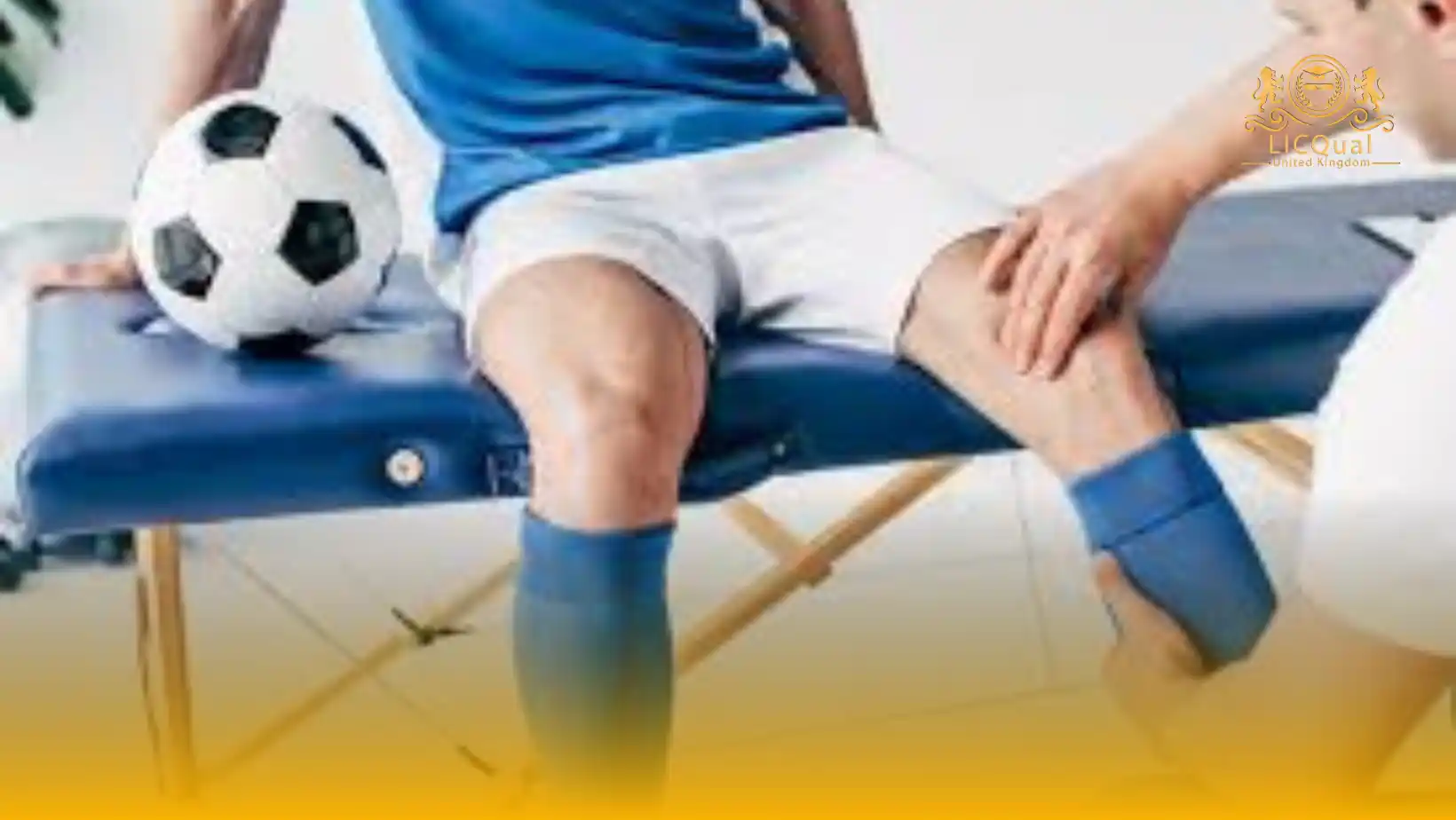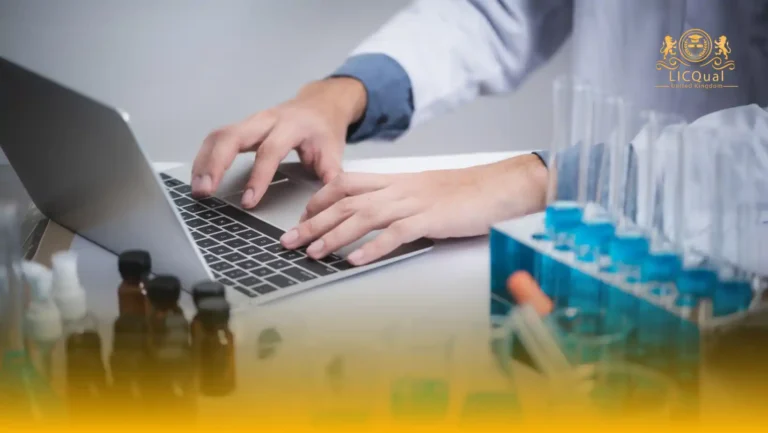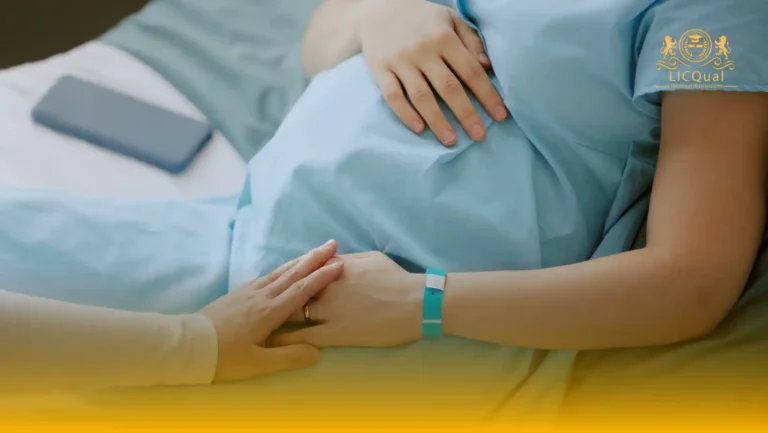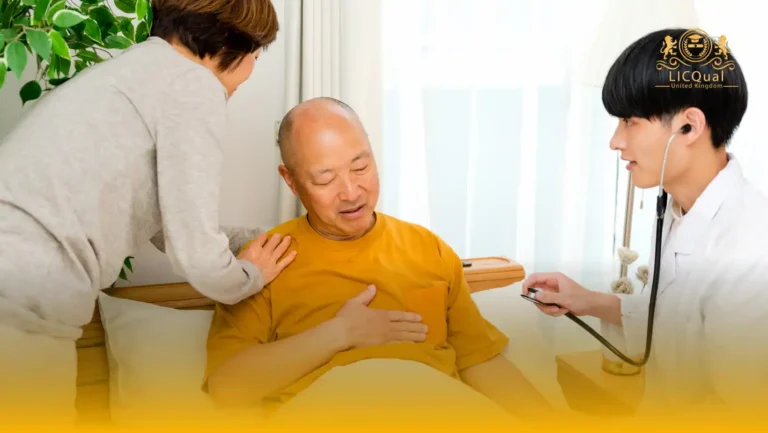The LICQual Level 3 Certificate in Sports Medicine (Cert SM) is a specialised qualification designed for healthcare and sports professionals seeking to advance their knowledge and expertise in the prevention, assessment, and management of sports-related injuries and conditions. This Level 3 Certificate is aimed at learners with prior experience in healthcare, physiotherapy, sports therapy, or related fields who wish to enhance their career prospects, deepen their professional knowledge, and fulfil Continuing Professional Development (CPD) requirements. It is not intended for beginners but for those committed to delivering safe, evidence-based care in sports medicine.
Learners enrolling in this course will gain a comprehensive understanding of sports physiology, injury prevention, musculoskeletal assessment, rehabilitation strategies, and performance optimisation. The course emphasises both theoretical knowledge and practical application, enabling learners to apply sports medicine principles effectively in clinical, athletic, and community settings.
To maintain the highest standards of training and learner achievement, centres delivering this qualification must employ competent and qualified staff, and provide access to all necessary learning materials, practical resources, and facilities. This ensures learners receive a high-quality, engaging, and interactive learning experience, promoting professional growth and clinical competence.
Whether you are a physiotherapist, sports therapist, coach, or allied health professional, this Level 3 Certificate provides a solid foundation for career advancement, enhanced clinical skills, and improved athlete care outcomes. By completing the course, learners will be equipped to apply evidence-based strategies for injury prevention, rehabilitation, and performance enhancement, while contributing effectively to multidisciplinary sports medicine teams.
Course Overview
Qualification Title
LICQual Level 3 Certificate in Sports Medicine (Cert SM)
Total Units
6
Total Credits
24
GLH
120
Qualification #
LICQ2200860
Qualification Specification
To enroll in the LICQual Level 3 Certificate in Sports Medicine (Cert SM), applicants must meet the following criteria:
|
Qualification# |
Unit Title |
Credits |
GLH |
|---|---|---|---|
|
LICQ2200860-1 |
Anatomy and Physiology for Sports Medicine |
4 |
20 |
|
LICQ2200860-2 |
Sports Injuries and Pathophysiology |
4 |
20 |
|
LICQ2200860-3 |
Assessment and Diagnosis in Sports Medicine |
4 |
20 |
|
LICQ2200860-4 |
Rehabilitation and Recovery Strategies |
4 |
20 |
|
LICQ2200860-5 |
Performance Enhancement and Conditioning |
4 |
20 |
|
LICQ2200860-6 |
Ethics, Professional Practice, and Multidisciplinary Care |
4 |
20 |
By the end of this course, learners will be able to:
Unit 1: Anatomy and Physiology for Sports Medicine
Learning Outcomes:
- Understand the structure and function of the musculoskeletal, cardiovascular, and respiratory systems
- Explain how anatomy and physiology relate to athletic performance and injury risk
- Analyse the physiological responses to exercise and physical activity
- Evaluate the impact of anatomical and physiological factors on injury prevention
Unit 2: Sports Injuries and Pathophysiology
Learning Outcomes:
- Identify common sports injuries and their causes
- Understand the pathophysiology of acute and chronic injuries
- Analyse mechanisms of injury and risk factors in different sports
- Evaluate strategies to prevent and manage sports-related injuries
Unit 3: Assessment and Diagnosis in Sports Medicine
Learning Outcomes:
- Apply screening and assessment techniques to evaluate injuries
- Use diagnostic tools effectively to support clinical decision-making
- Conduct comprehensive injury evaluations considering physical and functional factors
- Develop accurate diagnoses to guide treatment and rehabilitation plans
Unit 4: Rehabilitation and Recovery Strategies
Learning Outcomes:
- Design and implement effective rehabilitation programmes for athletes
- Apply physiotherapy, exercise therapy, and recovery strategies to support healing
- Monitor progress and adjust interventions based on patient response
- Evaluate the effectiveness of rehabilitation strategies in restoring function and performance
Unit 5: Performance Enhancement and Conditioning
Learning Outcomes:
- Understand principles of strength, conditioning, and athletic training
- Apply exercise and nutrition strategies to optimise performance safely
- Analyse factors influencing athletic performance and adaptation
- Evaluate training programmes to improve efficiency, endurance, and skill
Unit 6: Ethics, Professional Practice, and Multidisciplinary Care
Learning Outcomes:
- Demonstrate patient-centred care and effective communication with athletes and teams
- Apply ethical principles and professional standards in sports medicine practice
- Collaborate effectively within multidisciplinary teams
- Evaluate strategies for optimising athlete outcomes through coordinated care
The LICQual Level 3 Certificate in Sports Medicine (Cert SM) is designed for healthcare and sports professionals who want to expand their expertise in sports injury prevention, musculoskeletal assessment, and rehabilitation strategies. This Sports Medicine Level 3 course is ideal for doctors, physiotherapists, nurses, trainers, and allied health professionals who are seeking CPD accreditation, career advancement, and an internationally recognized qualification. It is not intended for beginners but for those already working in healthcare, physiotherapy, or sports science who want to strengthen their specialist knowledge and clinical skills in sports medicine.
1. Medical Doctors and Physicians
- Enhance diagnostic and treatment skills for sports‑related injuries
- Gain advanced knowledge of musculoskeletal and exercise physiology
- Improve patient outcomes with evidence‑based rehabilitation strategies
- Strengthen clinical decision‑making in sports injury management
- Earn a globally recognized sports medicine certification
2. Physiotherapists and Rehabilitation Specialists
- Build expertise in injury prevention and rehabilitation techniques
- Learn advanced musculoskeletal assessment methods
- Support athletes with tailored recovery and performance plans
- Fulfill CPD requirements while advancing clinical practice
- Increase employability in sports clinics, hospitals, and rehabilitation centers
3. Nurses and Allied Health Professionals
- Develop confidence in supporting patients with sports injuries
- Learn patient‑centered approaches to rehabilitation and recovery
- Expand scope of practice with specialized sports medicine training
- Gain CPD credits for professional development
- Strengthen career opportunities in sports and healthcare sectors
4. Sports Therapists and Athletic Trainers
- Deepen knowledge of exercise physiology and injury prevention
- Learn evidence‑based approaches to athlete care and performance
- Strengthen skills in rehabilitation and return‑to‑play strategies
- Gain recognition with a Level 3 Sports Medicine qualification
- Broaden career opportunities in professional sports organizations
5. Fitness Coaches and Personal Trainers
- Understand the science behind sports injuries and safe training
- Learn to design exercise programs that reduce injury risk
- Support athletes and clients with recovery and performance goals
- Gain credibility with a CPD accredited sports medicine course
- Enhance career profile in fitness and athletic performance
6. Public Health and Community Health Professionals
- Address the growing importance of sports and physical activity in health
- Learn preventive strategies for injury reduction in communities
- Support wellness programs with sports medicine knowledge
- Gain skills to manage common sports injuries at primary care level
- Strengthen role in public health and patient advocacy initiatives
7. International Healthcare Professionals
- Obtain a globally recognized sports medicine certificate
- Align with UK and international healthcare standards
- Improve career mobility across countries and regions
- Gain competitive advantage in global sports healthcare markets
- Access structured, flexible learning designed for busy professionals
To deliver high-quality training and ensure learner success, centres offering this qualification must meet the following requirements:
- Qualified and Competent Staff: Centres must employ experienced trainers and assessors with relevant professional qualifications in sports medicine, physiotherapy, healthcare, or related clinical fields. Staff should have practical experience and expertise in Level 3 healthcare education.
- Access to Learning Resources: Centres must provide learners with up-to-date course materials, textbooks, digital learning platforms, and reference resources to support both theoretical knowledge and practical application.
- Teaching and Learning Facilities: Centres should have suitable classrooms, practical training areas, gym or rehabilitation facilities, and demonstration spaces to facilitate interactive and practical learning experiences.
- Assessment Arrangements: Centres must implement robust assessment procedures, including formative and summative assessments, to ensure learners achieve all required learning outcomes.
- Health and Safety Compliance: Centres must maintain safe learning environments, adhering to UK health and safety regulations, particularly for practical or physical activity sessions.
- Quality Assurance Systems: Centres should have effective internal quality assurance mechanisms, including monitoring teaching standards, learner feedback, and continuous improvement strategies.
- Support for Learners: Centres must provide guidance and support services, including access to tutors, mentoring, and resources for independent study to promote learner success.
Meeting these requirements ensures that centres deliver a professional, credible, and internationally recognised training programme, equipping learners with the knowledge and skills needed for excellence in sports medicine.
Assessment and Verification
All units within this qualification are subject to internal assessment by the approved centre and external verification by LICQual. The qualification follows a criterion-referenced assessment approach, ensuring that learners meet all specified learning outcomes.
To achieve a ‘Pass’ in any unit, learners must provide valid, sufficient, and authentic evidence demonstrating their attainment of all learning outcomes and compliance with the prescribed assessment criteria. The Assessor is responsible for evaluating the evidence and determining whether the learner has successfully met the required standards.
Assessors must maintain a clear and comprehensive audit trail, documenting the basis for their assessment decisions to ensure transparency, consistency, and compliance with quality assurance requirements.







